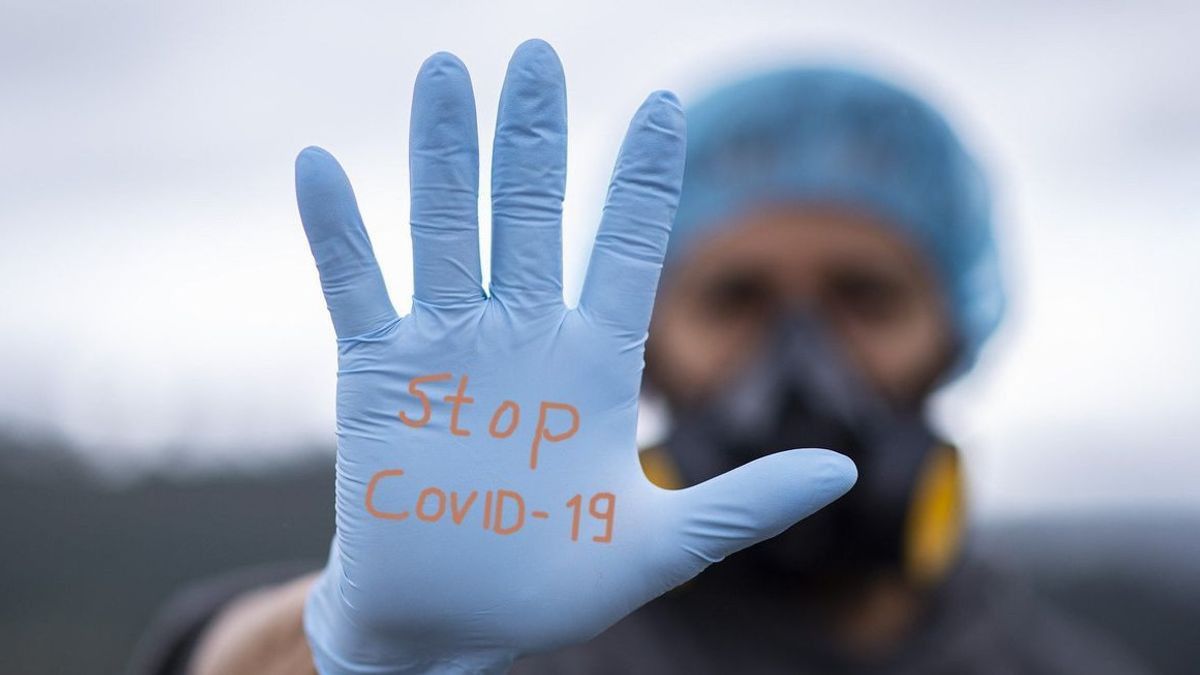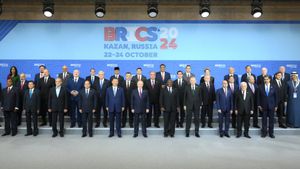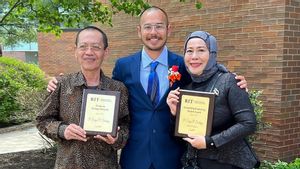JAKARTA - The government claims that the imposition of micro-based community activity restrictions (PPKM) is effective in reducing active cases of COVID-19.
Active cases in the majority of provinces in Java and Bali have decreased since the Micro-based PPKM took effect on 9 February.
President Joko Widodo also admitted that he was optimistic that the Micro-based PPKM was able to prevent the COVID-19 case. Jokowi reflected on the condition of handling COVID-19 in India which implements a micro lockdown.
In response to this, an epidemiologist from Australia's Griffith University, Dicky Budiman said that it is not certain that the real condition of active COVID-19 cases in areas that implement Micro-based PPKM has decreased.
This is because, according to Dicky, India could successfully overwhelm the COVID-19 case when implementing micro-restrictions because it was followed by a massive number of examinations (testing).
"Of course what is done in India is somewhat different from our Micro-based PPKM. In India, the main focus remains in the 3T, namely massive testing, tracing, and treatment. Their testing is also cheap, easy, and generally free", Dicky told VOI, Wednesday, February 24.
Unfortunately, the efforts to deal with COVID-19 in India cannot be compared with the implementation of Micro-based PPKM in seven provinces of Java and Bali. According to Dicky, the decrease in cases was not due to the Micro-based PPKM, but because the number of tests was not yet massive.
"The problem is that the number of undetected cases is far more. Indeed, this Micro-based PPKM is not a bad strategy, but the timing is not right if it is to be implemented in Java and Bali where the problem is much more serious", explained Dicky.
As is known, the Spokesperson for the COVID-19 Handling Task Force, Wiku Adisasmito, said that the majority of provinces implementing Micro-based PPKM experienced a decrease in active cases.
"The average development of active cases in these 7 provinces shows a decline. DKI Jakarta, West Java, Banten, Bali, and DI Yogyakarta, the trend shows a decline when entering the third phase of the PPKM period or the fifth week of PPKM. In fact, East Java has decreased since at the second stage of PPKM", said Wiku.
Then, the Coordinating Minister for the Economy Airlangga Hartato said that one of the reasons for the government to extend the Micro-based PPKM until March 8 was because there was a decrease in active cases of COVID-19 from the previous implementation.
"In February 5 to 17, the national active cases fell minus 2.53 percent, from 15.57 percent to 13.04 percent", said Airlangga.
When active cases decline, the cure rate for COVID-19 increases. Airlangga explained, the recovery rate during the week rose 2.56 percent to 84.24 percent. Then, the rate of increase has decreased by 0.03 percent to 2.72 percent.
As previously reported, President Joko Widodo also admitted that he was optimistic that the PPKM would be able to prevent COVID-19 cases. He learned from the handling process of COVID-19 in India. At the start of the pandemic, India implemented a one-country lockdown. Unfortunately, this failed due to weaker economic conditions.
The English, Chinese, Japanese, Arabic, and French versions are automatically generated by the AI. So there may still be inaccuracies in translating, please always see Indonesian as our main language. (system supported by DigitalSiber.id)













